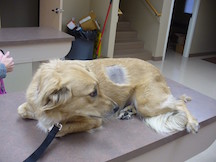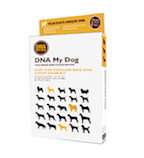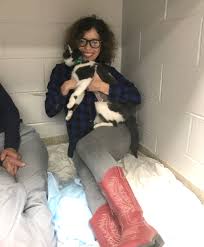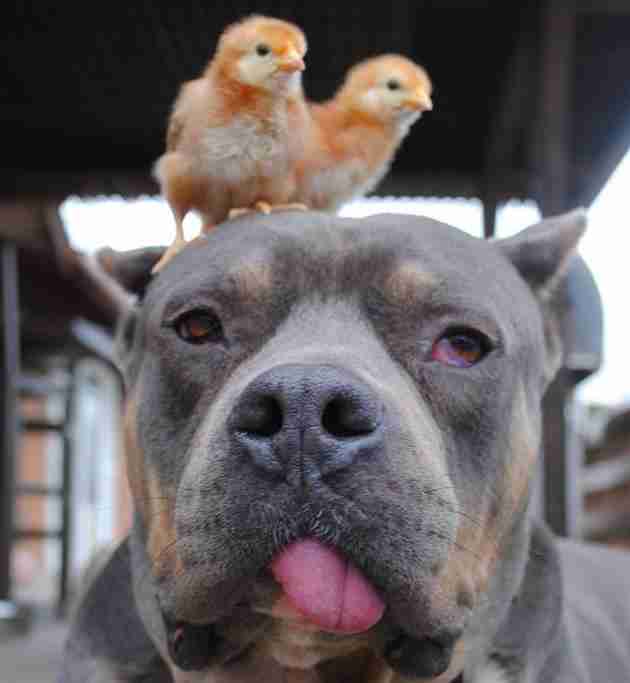Are People Harming Their Pets for Drugs?
Dr. Kevin Fitzgerald
 Is it really true that people are actually hurting their pets to seek drugs, usually opioids or pain medications? Some people obviously are! A lady in Kentucky was charged with fraud and torture after she cut her dog multiple times to get the opioid and pain-killer Tramadol. Is this just the tip of the iceberg? Dr. Kevin Fitzgerald is back to chime in on the national opioid crisis and how it affects our pets.
Is it really true that people are actually hurting their pets to seek drugs, usually opioids or pain medications? Some people obviously are! A lady in Kentucky was charged with fraud and torture after she cut her dog multiple times to get the opioid and pain-killer Tramadol. Is this just the tip of the iceberg? Dr. Kevin Fitzgerald is back to chime in on the national opioid crisis and how it affects our pets.
Dr. Kevin Fitzgerald explains that certainly the opioid crisis is on the radar of the American Veterinary Medical Association. So the question is, are people purposely hurting their pets to get the medications or are people taking the medications that have already been prescribed for their pet? What he sees is a diversion of medication that is prescribed for the pets going to the people.
Dr. Fitzgerald explains that there have also been a few cases reported in the news that come to his mind right away of people harming their pets on purpose, but people nationwide hurting their animals just to get the medicine is not typically what he sees.
What he does see, however, are opioids being abused by people that come in to his office. He says they even give themselves away with several red flags. Usually, it's a person who you haven't seen before and you have no patient/doctor relationship with them. They come in asking for drugs and they know the name of the drug and they also know dosages. They're also asking for an inordinate amount, just a whopping number of pills.
They also always have excuses for needing this amount of pills right away. They may say that their medication spilled and they need to replace it immediately. Or they'll say, I just moved here and my vet is in another state so can I get some pills to hold my dog over? However, you have no relationship with them and you don't really know what problems the dog has.
There are several things we can do to safeguard this according to Dr. Fitzgerald. He practices in Colorado and has already seen this happen in his area. He thinks that we need to train staff to recognize the flags. Dr. Fitzgerald doesn't know about other states, but last year in Colorado, a Prescription Monitoring Program was instituted where they can look up a person and see if they are a drug abuser with prior offenses. They can also tell if they are on any prescription medicine at the present time. So if they see suspicious activity, they can monitor it.
But what if a person goes to five different vets and collect drugs? Are any of these vets going to know another vet has already prescribed pain meds for their animal? Unfortunately there is no database that currently connects vet offices together.
Dr. Fitzgerald explains the drugs that are currently in vet offices that have the potential for abuse. There is Alprazolam, which is like Xanax and can be used for anxiety related to firecrackers or thunderstorms. There is Benzodiazepine, which is like Valium. There is Tramadol, an opioid that is used for pain. There is also Hycodan, a cough suppressant for dogs with codeine in it. And then there is the Fentanyl Patch that is used for pain, which is harder to get.

 There was recently a case that made news headlines where a woman in Kentucky admitted that she intentionally cut her dog multiple times to get the opioid Tramadol. She served a three-month sentence and then spent another 10 more months in prison for violating her parole. Unfortunately, the felony was that she attempted to obtain controlled substances by fraud, and the misdemeanor charge was the torture of her dog. This is simply because our animals are treated as property and that's how the courts rule on these sorts of things.
There was recently a case that made news headlines where a woman in Kentucky admitted that she intentionally cut her dog multiple times to get the opioid Tramadol. She served a three-month sentence and then spent another 10 more months in prison for violating her parole. Unfortunately, the felony was that she attempted to obtain controlled substances by fraud, and the misdemeanor charge was the torture of her dog. This is simply because our animals are treated as property and that's how the courts rule on these sorts of things.
Fortunately the way the law sees animals has been changing from state to state. Dr. Fitzgerald explains that there are some laws in Colorado where people can receive a felony charge for animal abuse.
The case of the Kentucky woman who received the most press is the exception, according to Dr. Fitzgerald. He doesn't think people are intentionally hurting animals, compared to the number that may try and do drug fraud to get the drugs that their animals are on.
So are they able to do a drug test on the animal to see if it is actually receiving the medication that was prescribed for it? Dr. Fitzgerald explains that yes, they can test for several drugs to see if they are present in a dog's bloodstream.
Dr. Fitzgerald also tells us of one of his employees that previously worked for another vet before working for him. Turns out she recognized a client who also came to her previous office seeking pain medication for their pet as well.
The problem is that there is no system between veterinary offices. But Dr. Fitzgerald explains that if they come to his office on an emergency, that person will be asked who their regular vet is. They can even tell from the rabies tags in Colorado who their regular vet is, because it is listed on the tag. Another thing they can do is look at the Prescription Monitoring Program, and if they see any red flags, they turn it over to the authorities and then they'll look into it.
While there have been a few cases, Dr. Fitzgerald still feels that the idea that people are out there hurting pets in huge numbers is not actually what's happening, compared to people that are trying to divert the drugs for their animal to themselves.
Of course this is actually hurting their animals in the long run, because they are not getting the medications that have been prescribed for them.
 Dr. Fitzgerald explains that everyone just needs to be aware of the problem and train their staff to identify red flags. He also says just imagine the desperate nature of somebody doing this type of stuff. He thinks it underscores the actual behavior and character of addiction, what it is and what a horrible, horrible affliction we have in this country. He also thinks we need to get the root of the problem of these poor people that are addicted and imaging the pain of someone who is so desperate.
Dr. Fitzgerald explains that everyone just needs to be aware of the problem and train their staff to identify red flags. He also says just imagine the desperate nature of somebody doing this type of stuff. He thinks it underscores the actual behavior and character of addiction, what it is and what a horrible, horrible affliction we have in this country. He also thinks we need to get the root of the problem of these poor people that are addicted and imaging the pain of someone who is so desperate.
AVMA working group has taken up the task of providing needed information to help veterinary professionals contribute productively to the national response to human opioid addiction.
Visit Website
Who's your Daddy?
Mindy Tenenbaum, DNA My Dog
 Mindy Tenenbaum has joined the ranks of the increasingly popular pet DNA testing industry. Her company, DNA My Dog, uses a sophisticated, yet easy to use cheek swab test that reveals your dog's genetic make-up. This information can be used to moderate your pet's health and understanding its behavior. Mindy will be giving away a DNA test to a deserving listener.
Mindy Tenenbaum has joined the ranks of the increasingly popular pet DNA testing industry. Her company, DNA My Dog, uses a sophisticated, yet easy to use cheek swab test that reveals your dog's genetic make-up. This information can be used to moderate your pet's health and understanding its behavior. Mindy will be giving away a DNA test to a deserving listener.
Why is it so important to know what breed or breeds your dog is? Mindy explains that most people are curious and want to know what the breeds are in their dog. But sometimes people want to know any genetic health risks that the dog may be prone to and even what size the dog will be when fully grown.
When you adopt a puppy from a rescue, they do their best to determine the breed, but it's usually just their best guess. She tells us of people who have adopted puppy Chihuahuas from a rescue and then when the dogs three months old, they weighed 42 pounds.
So puppies are like babies. They're all cute and kind of look alike and you can't tell what breed they are until they get older. Puppies may be brown at first, then the next week they're black and then the next week they're white.
Mindy tells us they also do DNA tests for shelter dog. This is because when they have the actual breeds of the dogs that they're adopting out, it increases the speed to which the dog gets adopted. When people walk in and see the dog, they may say, "Oh look, it's a Jack Russell/Boston terrier mix." They're just more comfortable with knowing what the dog is. They've also had a lot of shelters where the dogs have been sitting there for months and months. However, when they do a DNA test and list the breed, the dog usually gets adopted within the week.
So just how accurate are these tests? Mindy explains that that's the big question that they get asked all the time. She says it's not something she can answer, as no DNA test is 100-percent accurate. She always tell people that if somebody tells them that their DNA test, for anything not just canine DNA testing, is 100-percent accurate, it's impossible. This is because it's going to depend on a number of things.
 If you get a test from DNA My Dog and you follow the instructions, you're going to get a test that should be about 99.99 percent accurate. Where that falls apart in accuracy, is that Mindy wasn't personally there when you took your dog's sample. Did you follow the instructions exactly? Was your dog in contact with other dogs? Did you let it air dry long enough? Did your dog eat before it took the sample? Those are things that they can't control. So if you do what they tell you to do with the sample, then you should get a really great result.
If you get a test from DNA My Dog and you follow the instructions, you're going to get a test that should be about 99.99 percent accurate. Where that falls apart in accuracy, is that Mindy wasn't personally there when you took your dog's sample. Did you follow the instructions exactly? Was your dog in contact with other dogs? Did you let it air dry long enough? Did your dog eat before it took the sample? Those are things that they can't control. So if you do what they tell you to do with the sample, then you should get a really great result.
It's becoming more and more popular for people to do DNA tests on their dogs. This is because it is a lot more popular now for people to get shelter dogs and they want to know the breeds involved. Whereas years ago, a lot of people would go to a breeder and get a pure bred, in which case they would have no use for a test like this.
The DNA My Dog kit is available directly from their website, as well as from other online distributors. They are $68.99, which gives you everything you need. You will get the kit, a prepaid-return envelope to send it back in and then you'll get your results for that one price.
Just remember to follow the directions carefully. Make sure your dog has not been around another dog for at least an hour before the test. This means they cannot also be around any shared toys or water bowls, as this can cause oral contamination. Also, make sure to swab the INSIDE of the cheek CSI Style, not the outside of the cheek.
Which is better - a cheek swab test versus a blood draw test? Mindy states it's less expensive to do the cheek swab. Surprisingly, the blood draw is not a better test. Even though sometimes the cheek swap can have contamination in it, they can usually catch that on their end. If they do find any contamination, they would send you a new test.
Visit Website
Prevent Pet Poisonings - Dr. Debbie
 March 17th through 23rd is Pet Poison Prevention Week, and an important time to look out for your pet's safety. As a veterinarian I see all types of pet toxicities, but it is through my own foolish Labrador's "toxic adventures" that I've experienced the anxiety and worry of a pet toxicity. My male Labrador, Magnum, has eaten a full bottle of urinary continence medication, and another time suffered from the worst case of chocolate toxicity I've ever seen.
March 17th through 23rd is Pet Poison Prevention Week, and an important time to look out for your pet's safety. As a veterinarian I see all types of pet toxicities, but it is through my own foolish Labrador's "toxic adventures" that I've experienced the anxiety and worry of a pet toxicity. My male Labrador, Magnum, has eaten a full bottle of urinary continence medication, and another time suffered from the worst case of chocolate toxicity I've ever seen.
Magnum loves to eat anything and everything. He doesn't discriminate with his ingestions, and has savored every type of animal excrement, ingested deceased rodents, gobbled on loaves of bread, destroyed jars of nuts, and slurped up rocks like Beggin-Strips. Learn from my experience, on both sides of the exam table and heed Dr. Debbie's "must know" tips to avoid pet poisonings.
Don't Underestimate Motivation
Pets are naturally curious and will knock items off counters, sniff out edibles and unearth household belongings all in the name of something interesting or tasty. Keep counters clear of food and medications. Eliminate opportunities for your pet to get into trouble in the first place.
And if you are the proud owner of a Labrador, as I am, you should know that the Labrador is the most common breed for toxicities. Labradors are very food motivated and poses a keen sense of smell - main reasons why this breed leads in emergency room visits.
Secure Human Medications
According to the ASPCA Animal Poison Control Center, the top toxicity in 2012 was from ingested human prescriptions. The main three culprits were heart medications (i.e. blood pressure meds), pain medications and antidepressants. Secure all human medications and avoid taking your medications with pets in the immediate area. Just one dropped pill can mean big problems for your cat or dog.
 Know Dangerous Human Foods
Know Dangerous Human Foods
Become informed on common human foods that are off-limits for your pets. A stick or two of sugar-free xylitol containing gum can kill your dog. Grapes, raisins, macadamia nuts, onions and chocolate are all toxic to animals.
Be Aware of Chewables
Chewable and flavored pet medications definitely make it simpler to administer our pet's medications, but are easily ingested in large quantities. Secure all human and pet chewable medications. Common pet chewable medications include arthritis medications, vitamins, supplements and heartworm preventatives.
Take the Evidence
If your pet should suffer a toxic exposure, bring all suspect material. Your veterinarian needs to know what was ingested and the approximate time of ingestion. Don't make your veterinarian guess on these important details. Look for evidence of vomiting or diarrhea in the home. Bring any chewed medications, containers or vomitus.
Keep Emergency Numbers Handy
Know your veterinarian's daytime and after-hours emergency facility phone numbers. Not sure if you need to see the vet? Check out the ASPCA Animal Poison Control Center, a consultation service staffed by veterinary toxicologists to investigate your pet's toxic risk or call 1-888-426-4435. Consult fees apply.
Fortunately after decontamination, ICU time, and emergency care, silly Magnum came through just fine. But even with a cautious, watchful mom, he still has been able to rack up his share of emergency hospital visits in 11 years.
My best advice to any dog owner, is that no matter how well-behaved the pet or how prepared the owner, your pet is really just one gulp away from a toxicity. Besides, if it can happen to a vet's pet, it can happen in any pet household.
Featured veterinarian known as "Dr. Debbie" on national pet radio program, Animal Radio. Ebook author of "Yorkshire Terriers: How to Be Your Dog's Best Friend"; "Pugs: How to Be Your Dog's Best Friend"; "Mini Schnauzers: How to Be Your Dog's Best Friend"; and "Shih Tzu: How to Be Your Dog's Best Friend." Dr. Debbie's books.
Visit Website
Animal Radio News - Lori Brooks
 More States Consider Animal Abuser Registries
More States Consider Animal Abuser Registries
Some of the county's most infamous mass murderers had a history of hurting animals before they went on to target humans, which is behind a movement by more states to create public online registries of known animal abusers. There are currently 11 states considering animal abuse registry bills. They include Hawaii, Indiana, Maryland, Massachusetts, Mississippi, New Jersey, New York, Oklahoma, Rhode Island, Virginia and Washington. Most of these states have counties that already have local registries, but lawmakers think it's too easy to move from one county to another, and want to pass bills that would cover their entire states.
 Watch Out For Those Killer Cows
Watch Out For Those Killer Cows
When you hear about killer attacks by animals they usually make sensational headlines. Think of people attacked by bears or sharks. But those are not the animals most likely to kill people, at least not in the US. The title of the animal most likely to kill an American actually goes to farm animals, mostly cows and sometimes horses, according to a new study from researchers at Stanford University. Their study looked at the 1,610 deaths of people killed by animals between 2008 and 2015 and these cases did NOT include car accidents involving deer. The study shows that cows and horses killed the most people. Second on the list of deadly animals were stinging insects including hornets, bees and wasps, which caused nearly a third of the deaths studied. Dog-related fatalities were 4.6 deaths per 10 million persons among children 4 years of age or younger, which is nearly 4-times greater than in the other age groups of people older than 4 killed by dogs. Breaking that down, there were 72 people killed by dogs, or 17-percent of the total 1,610 cases studied. The authors noted it was "troubling," that most dog mauling victims are small children or elderly adults whose deaths were "preventable." The study concluded that preventing deadly run-ins with those killer cows and horses should also be a higher public health priority.
 Nearly $20,000 Cat Kidney Transplant
Nearly $20,000 Cat Kidney Transplant
A little over a year ago Betsy Boyd of Baltimore got the bad news that her 17-year-old cat Stanley's kidneys were failing and he likely had only a few months to live. So Betsy, who is a very frugal part time professor, made the decision for Stanley to have a $19,000 kidney transplant. She also adopted Stanley's kidney donor, a 2-year-old tabby cat named Jay. That brings the total number of lucky cats in Betsy's home to six. She says if Stanley were to tragically die tomorrow, she would have no regrets. In her words, "We've already had a few really good weeks. He's really happy, and that alone is worth the price." Now if you think Betsy is independently wealthy, you are wrong. She says the message she would really like people to get from Stanley's story is that if you save your money carefully, you can have no debt and spend $19,000 on something that moves you, like your pet. Both Stanley and Jay the donor cat are doing great today.
 Drinkin' With Your Dog
Drinkin' With Your Dog
The seasons are changing and warmer weather is on the way. For those who live in Virginia, that means wine loving dog lovers who like their dog to tag along on outings will soon be able to legally take their dogs with them to wineries across the state. This all started late last year when Bluestone Winery said it could no long allow dogs in their tasting room because the Virginia Department of Agriculture and Consumer Services was cracking down on enforcement of a prohibition against dogs in tasting rooms (except for service animals). Bluestone's owner set out to change the law, because dogs are a big part of winery patrons. The new dog inclusion bill will likely be signed by the Governor, since it passed both state houses of Virginia government easily, almost unanimously. Only 2 lawmakers opposed it. The new law will allow companion animals inside and on the property of a licensed winery or farm winery, brewery or distillery. The only limitation, they can't be in an area where food is made. It's going to be a great summer in Virginia when the bill goes into effect July 1st.
 Catsbury Park Cat Convention
Catsbury Park Cat Convention
The Catsbury Park Cat Convention in New Jersey is coming up April 7th & 8th. If you're a cat lover anywhere in the country, this is a cat event you won't want to miss. Unlike most cat shows, the cats won't be contestants in a beauty or breed competition. This cat convention instead will feature some of the world's most famous cats, ready with their 8x10 glossies to give paw-tographs. It will cost you though. Cat lovers can pay as much as $100 to meet and take pictures with Instagram-famous felines at the convention's cat celebrity meet and greets. Some of the super famous celebrity cats include Lil Bub who has 3 million Facebook followers, a book, calendar, raises money for homeless pets and starred in the documentary "Lil Bub & Friendz." Lil Bub's VIP meet and greet paw-tograph event is the costliest at $100 for ticket and sold out in about a week. However, they added another opportunity to meet Lil Bub. Other social media sensation cats who will be at the convention include Pudge and her famous cat mustache and Teddy one of the "Adam Driver cats," who resembles the "Star Wars" actor. Teddy is also likened to Dobby, the house elf from the Harry Potter movies. However, Teddy's meet & greet is already sold out.
 Dogs Are Chick Magnets
Dogs Are Chick Magnets
As much as it can irk cat people, studies show people with dogs are thought to be more approachable, happier and more empathetic. For men, there is also the chick magnet effect. But why is that? Dr. Helen Fisher, a longtime relationship researcher who also consults Match.com, says people are attracted to dog owners because, "It says you can care for a creature, that you can follow a schedule and get home to feed it, that you can walk it and love it and spend time with it." Some of Dr. Fisher's research using surveys for Match.com shows:
- Nearly one-third of respondents said they had been "more attracted to someone" because they had a pet.
- More than half said they would find someone more attractive if they knew he or she had adopted a pet.
- Most respondents said they thought their date's choice in pets said a lot about their personality.
- More than half said they would not date someone who did not like pets.
- Two-thirds of respondents said they would judge their date based on how he or she responded to their own pet.
 Listen to the entire Podcast of this show (#954)
Listen to the entire Podcast of this show (#954)





